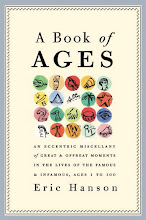Sometimes it seems as if modern events were written by a satirist, though a satirist might have thought a few public beliefs and behaviors too implausible for print or television. How can you tell if someone is joking? My wife says my lips move. But insane times are difficult for satirists. Good satire needs a solid rational footing to be funny. People need to be sane for something to strike them as funny.
Anyway, Happy Birthday to Jonathan Swift and Mark Twain, born on November 30th in 1667 and 1835 respectively. People didn't always know that Swift was joking, for instance when he modestly proposed to end poverty and starvation in Ireland by feeding the children of the poor to the upper classes. People were outraged––but they were perpetrating the same ends by other means, and that was Swift's point. We recall Gulliver's Travels as a whimsical bit of children's literature, which it's not; it's a brilliantly extended piece of satire, wonderfully deadpan and perfectly targeted at follies our "civilization" has yet to outgrow. Swift appears in four fairly cunning anecdotes in A Book of Ages (which, I modestly propose, contains its own ingredient of satire.)
Twain is better known today as a gentle kidder, a grandfatherly teller of jokes, but he really was a merciless scold, an irate crank, a persistent progressive, enemy of the gilded wealthy, and an undying unapologetic atheist. (Imagine that.) If pious parents had any idea what his politics and beliefs were they'd ban his books from children's bookshelves. He was a great celebrity and a huge success, but his own spectacular bankruptcy made him more understanding of failure in others, and a greater respecter of luck as a shaper of human events. He was the opposite of the Horatio Algers and Norman Vincent Peales and the modern day charlatans who preach (for large sums) that all it takes to be rich is hard work and regular church attendance. Twain vivisected that kind of phony philosophy a century ago, but it's still around. Which is why we need satirists today more than ever. Twain appears ten times in A Book of Ages.
(Have I reminded anyone lately that it's the perfect Christmas and birthday gift?)
Monday, November 30, 2009
Satire and Satirists
Labels:
atheism,
bankrup,
charlatans,
failure,
Jonathan Swift,
Mark Twain,
politics,
satire,
success
Subscribe to:
Post Comments (Atom)





No comments:
Post a Comment